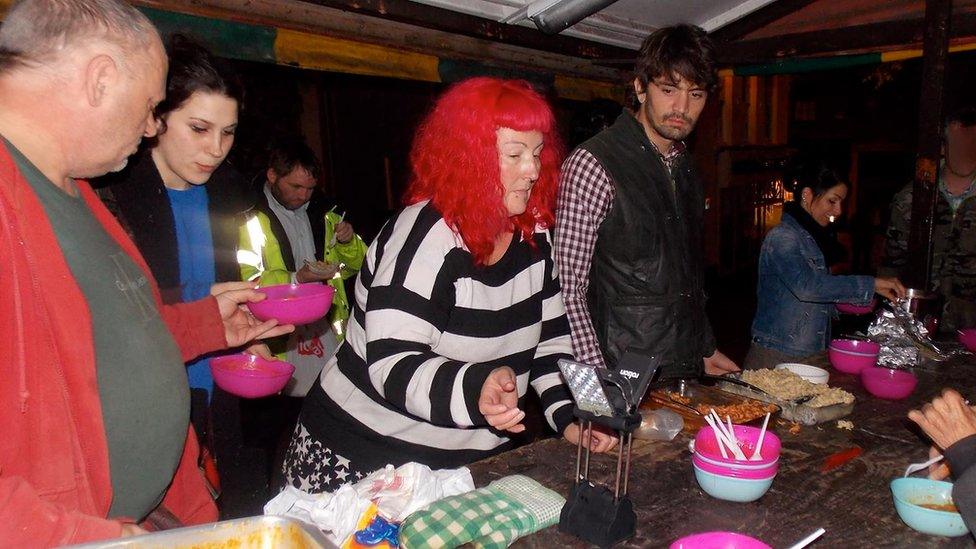Norwich council election candidates call for action on homelessness
- Published
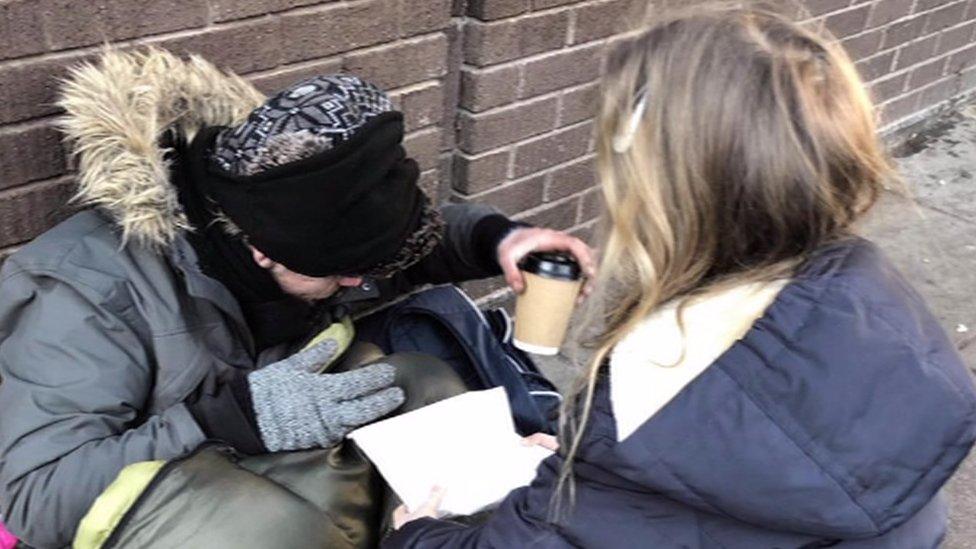
Florence Humphrey wanted to do something practical to help the homeless
More work is needed to help homeless people in a city despite a fall in rough sleeper numbers, local election candidates have said.
Numbers of homeless people in Norwich have dropped from 34 to 21 between 2016 and 2018, although in 2010 the figure was recorded as four.
The number of city households living in temporary accommodation has increased - from 21 to 50 - in the same period.
A homelessness strategy was drawn up for the city last year.
It found family breakdowns led to many people sleeping on the streets.
A project called Pathways Norwich, external, bringing together local authorities, charities and the NHS, was set up last summer to help reduce rough sleeping by providing more support and helping people find "suitable" accommodation.
Sorry, your browser cannot display this map
Ahead of local elections on Thursday, Norwich City Council candidates have spoken of their hopes of further reducing homelessness.
Denise Carlo, leader of the Green Party on the council, said "building more council homes" was crucial.
"We want to get people off the streets and give them a permanent home from where they can rebuild their lives," she said.

'Kicked out of my own home'
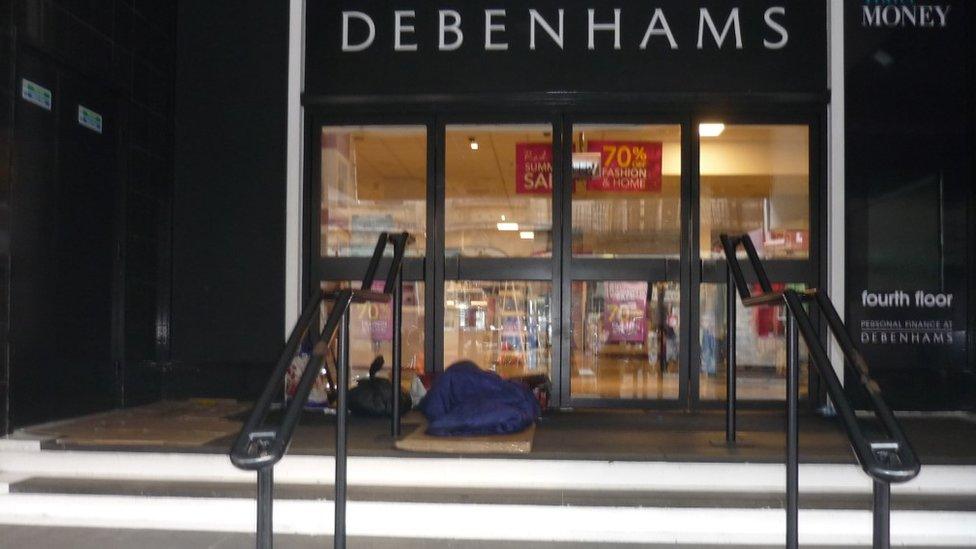
A Greater Norwich Homelessness Strategy was drawn up last year
Jose, 62, sleeping rough in Norwich city centre, said: "I've been sleeping on the streets since Christmas, I'd had a relationship with someone else and that finished and I became homeless.
"The council are trying to help. The council does work to find homes for people, but more homes are needed."
Danny, 29, from Norwich, said he had been living on the streets for three months.
"I was kicked out of my own home," he told the BBC. "The council said they could not give me emergency accommodation."
He said he had not been back to the council since.
Dr Jan Sheldon, chief executive of St Martins Housing Trust, which helps homeless people, said she hoped continuing work with the city council would soon reduce numbers of rough sleepers to "single figures that you can count on one hand".
She said the current level in Norwich was "not acceptable".
Almost 600 people died homeless in England and Wales in 2017, up 24% over five years, according to the Office for National Statistics.
Across England, an estimated 4,677 people a night are sleeping rough.

James Wright, the leader of the Liberal Democrat group on the council, said "more money needs to be injected into the system by central government".
"We need to work with the third sector [charities and housing associations] to deal with the housing shortage," he said.
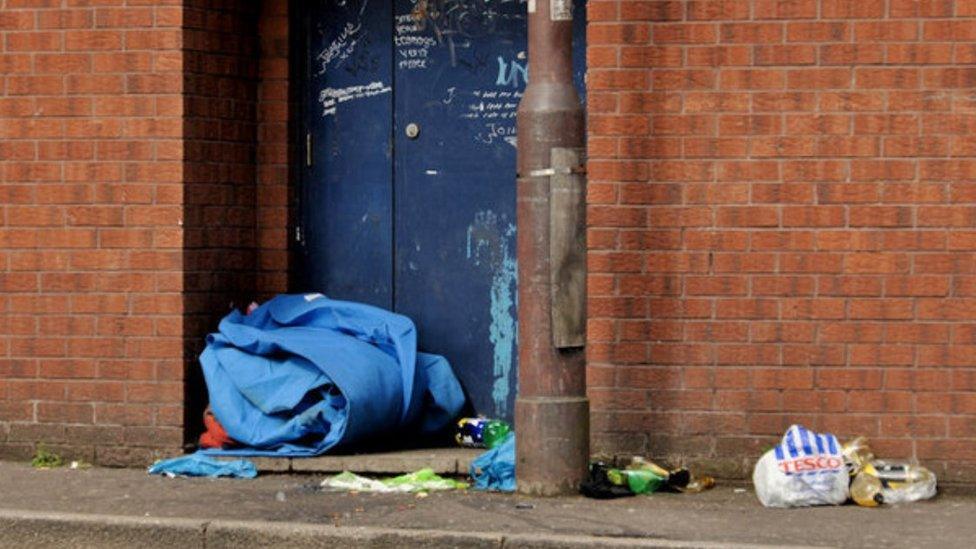
Many areas around the city centre are used by rough sleepers
Alan Waters, leader of the Labour-run council, said homelessness "reflects the fundamental problems around the shortage of affordable housing".
He said "problems" had also been caused by universal credit, which works by merging six different benefits, external for working age people into one monthly payment.
"The council has put in a lot of resources into housing, but we really need more," he said.
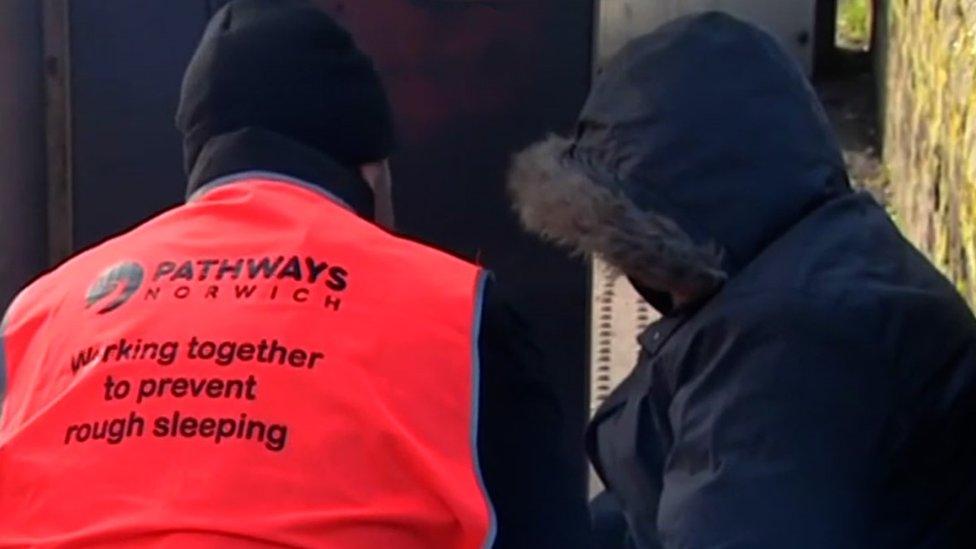
Pathways Norwich has been set up to help counter rough sleeping
Andrew Wiltshire, Conservative Party spokesman in the city council elections, said he was "concerned" at the number of rough sleepers but said there had been "significant funding" from government.
"We want to see the city council playing a real leadership role in reducing rough sleeping," he said.
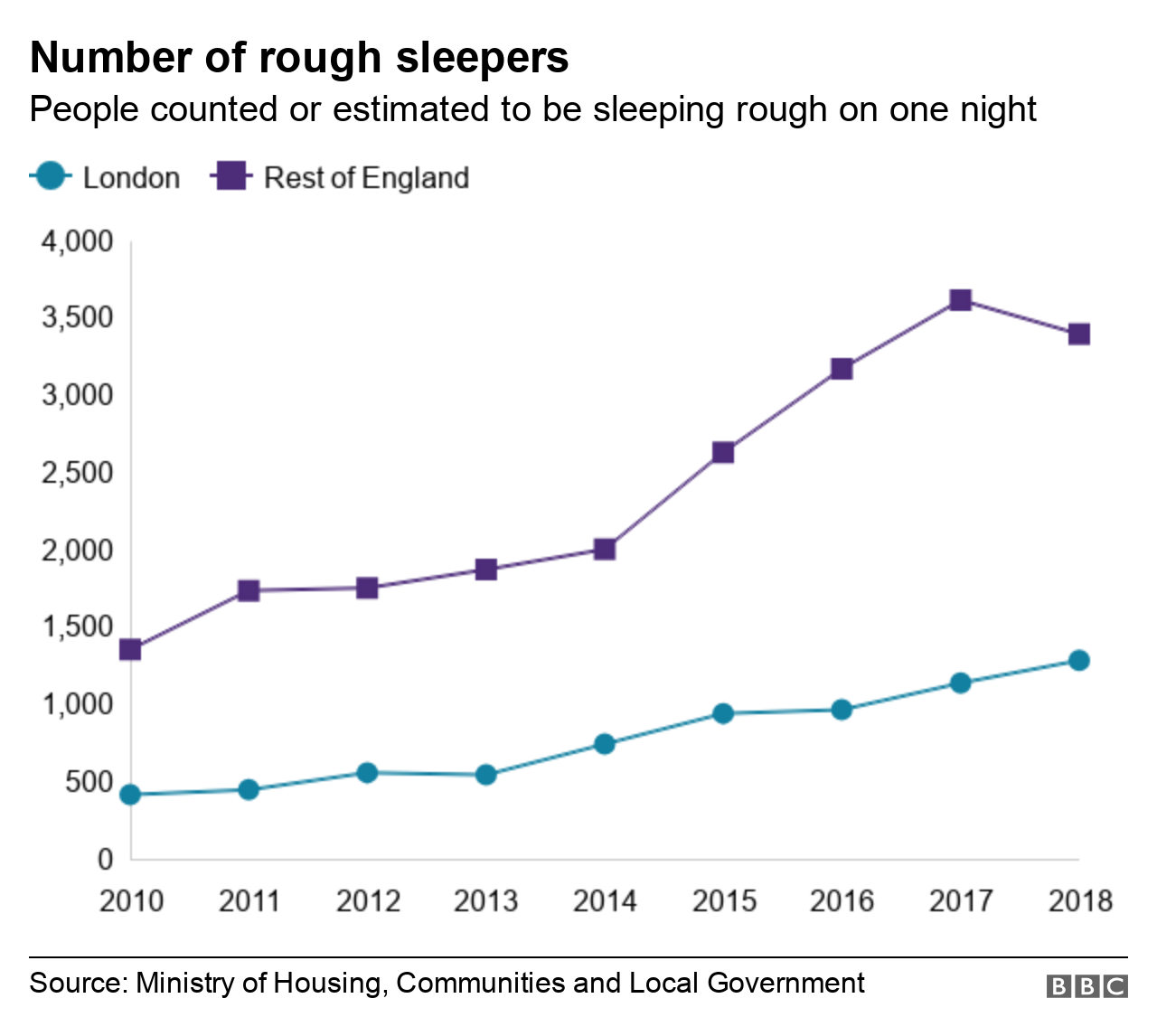
Peter Pyke, standing for the UK Independence Party, said: "I walk round the streets and see homelessness in the city, people sleeping in doorways.
"More affordable homes are needed and we need to give the homeless somewhere to sleep, but some people would rather sleep on the streets rather than in a hostel, which is very, very noisy."
Labour holds 31 seats on the council, external, with five for the Green Party and three for the Liberal Democrats.
- Published3 March 2019
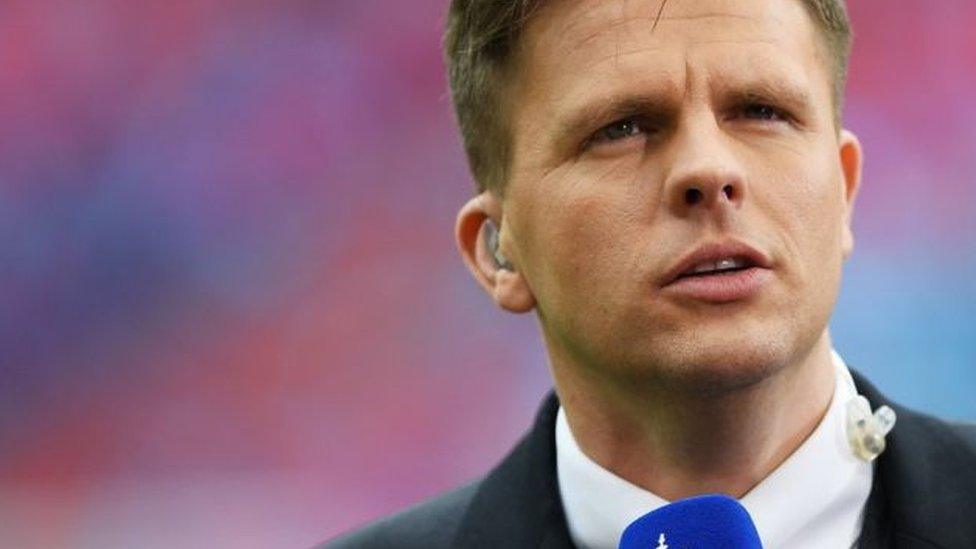
- Published20 December 2018
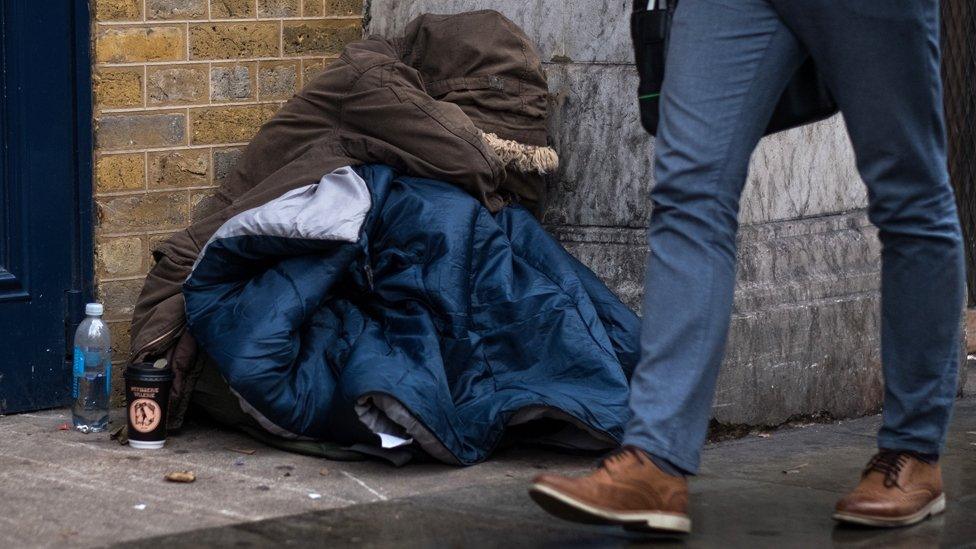
- Published2 September 2018
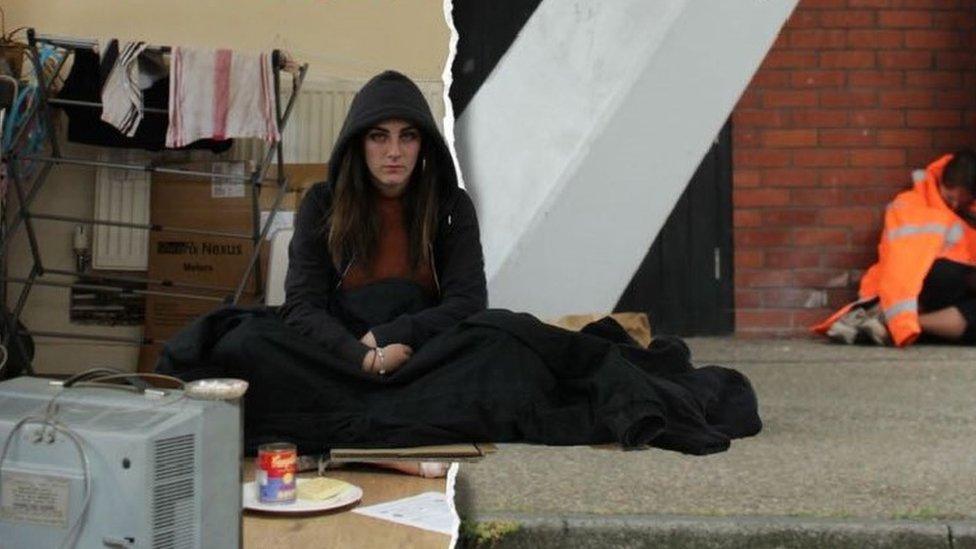
- Published13 August 2018
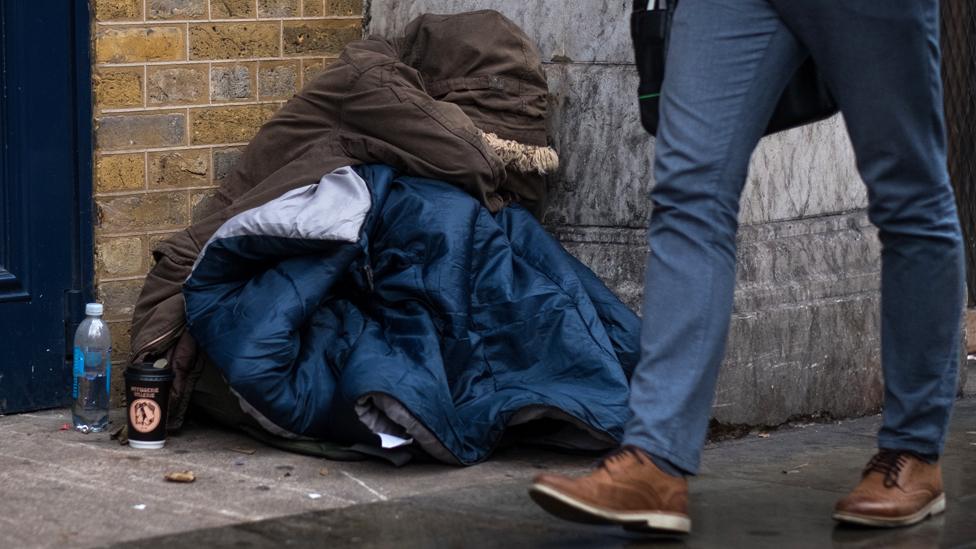
- Published26 February 2016
